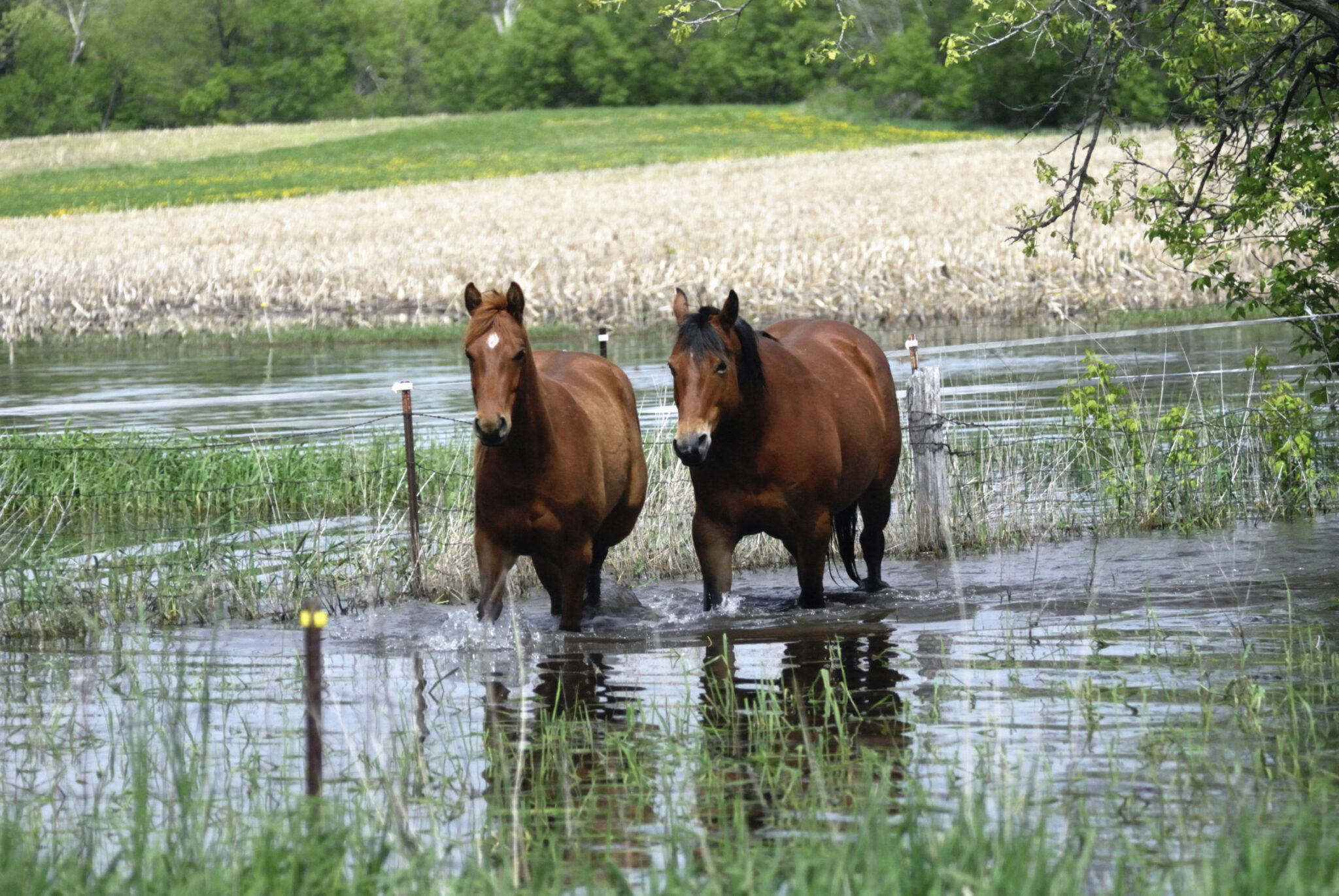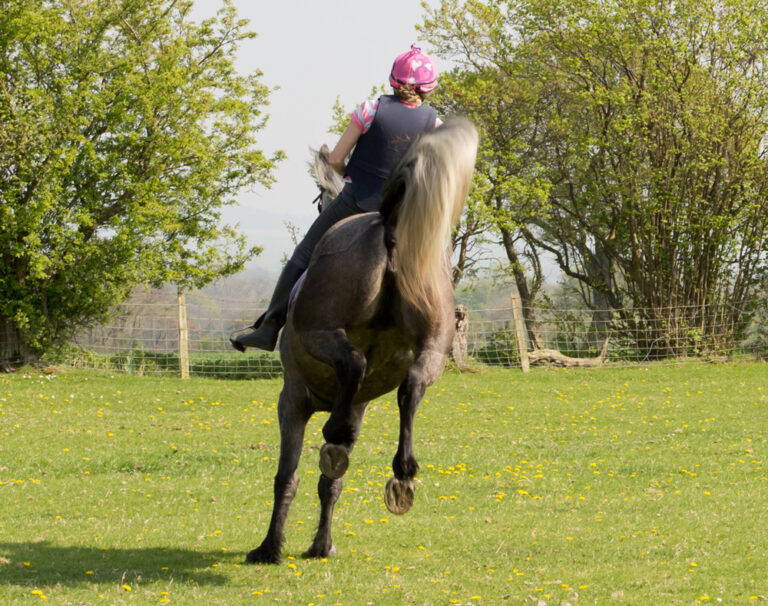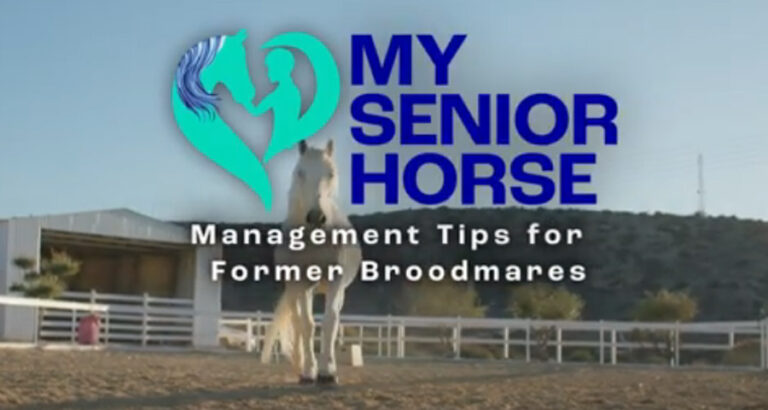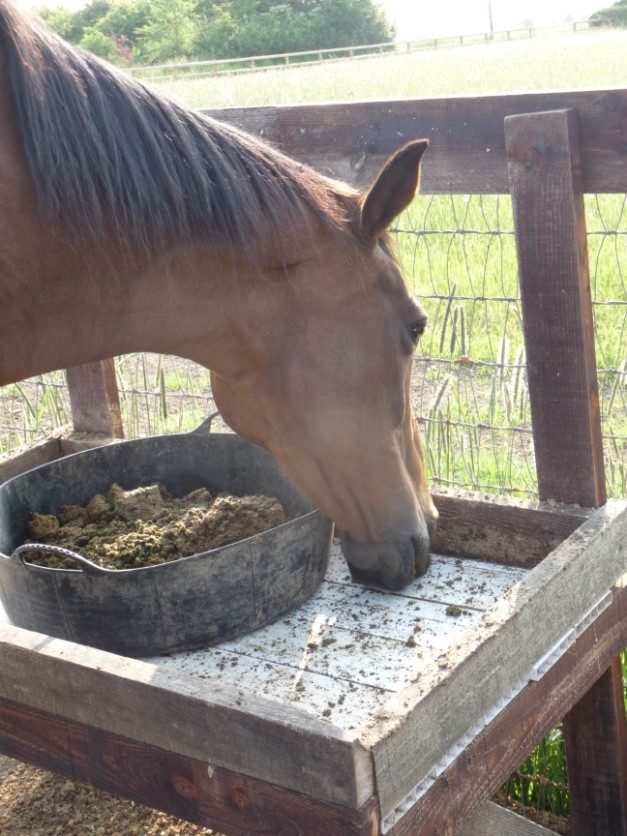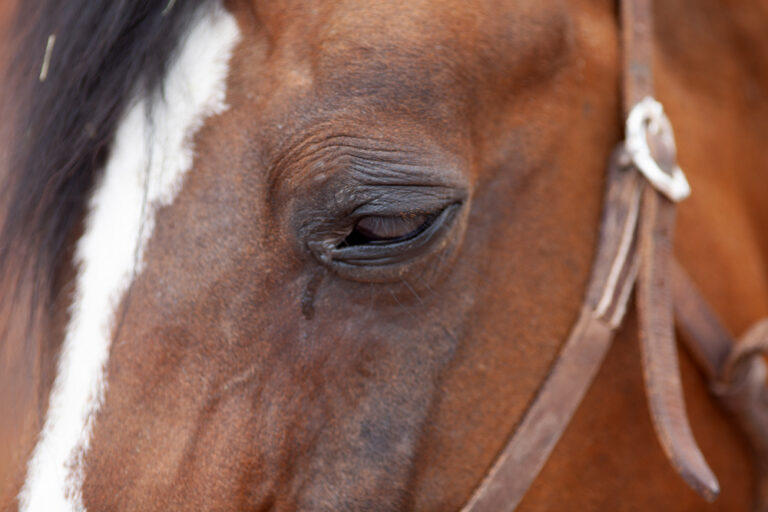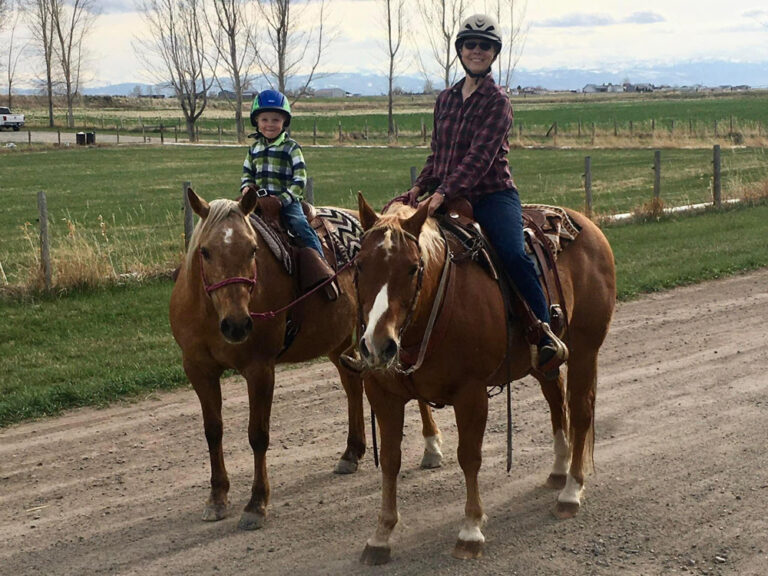Editor’s note: In the last year, devastating floods have occurred in the US, Germany, Afghanistan, Oman, Uruguay, Argentina, Indonesia, France, Brazil, UK, Australia, Tanzania, and more.1 In this article, we give you tips on protecting horses from flooding and how to prepare for flooding disasters.
There is an expected increase in flooding according to the U.S. Federal Emergency Management Agency (FEMA) and the UK Health Security Agency (HECC)—among others. They report that this increase is mostly due to climate change.
According to FEMA, floods can cause deaths; power, water, and gas outages; disrupt transportation routes and commercial supplies; pollute drinking water systems; damage homes, buildings, and roads; and cause severe environmental problems including landslides and mudslides.
FEMA noted that internationally, there were more than 2.8 million people were affected by flooding between 1980 and 2009. They noted that this number was probably underestimated.
Horse owners and equine property owners must prepare for the possibility of high water. In this article, we will give some tips from Heather Lewis, AIA, NCARB, AAA, a principal in the architectural firm Animal Arts, on protecting your horses from flooding.
From Shower to Flood
Lewis recalled a typical late summer shower in Colorado that turned out to not be typical!
“The difference was that it didn’t stop,” she recalled. “It rained for five days, causing widespread flooding. Many of the most heartbreaking stories from the floods involved people struggling to save their horses, dogs, and cats. Some people had to hope that their pets would find safety, as flooding made travel impossible.”
She learned from the flooding in Colorado that these events can happen almost anywhere.
“Even if you do not appear to be in the path of a flood, water can change course during a storm,” she advised. “Low-lying areas may fill with water, and small streams can swell to dangerous levels.”
What can you do to keep your horses safe? Follow these tips from Lewis for protecting horses from flooding.
Is Your Property in a Flood Zone?
You can begin by searching the map feature at FEMA.gov. Contact FEMA if you have questions. Your town or county planning department is also a good source of information, as it determines what can be built within the jurisdiction.
Don’t build in the “flood way,” which is the active conveyance of a stream during a flood. Accessory structures, including barns, might be allowed in 100-year flood zones. They might not be required to be set above the “base flood elevation.”
In other words, your horses might be housed in a building that will flood in a major storm. This situation is dangerous, so avoid building in flood zones when possible. This will also save you the hassle and expense of purchasing flood insurance.
Access to High Ground
Design your property to allow each horse to get to safe, high ground. This is critical because you might not be there in the event of a flood. Take these precautions:
- Do not construct pastures next to low-lying areas that are not connected to higher ground.
- If you live in an area prone to flash floods, do not turn your horses out next to stream beds. Flash floods move too quickly for your horses to react.
- Keep your horses out of soft, boggy areas. Even if you don’t experience a dramatic flood, over-saturated ground can be dangerous for your horse if he gets trapped in the mud.
Prepare for Emergencies
Think ahead for the survival of your barn during severe weather events. For your property, take these steps:
- Ensure that you have positive slope on all sides of your barn, and that water flows away from the structure.
- Keep all electrical gear off the floor.
- Ground your barn to prevent damage from lightning strikes.
- Trim or remove trees that could potentially damage your roads and structures.
For your horses, take time to have your truck full of gas and hook it up to your trailer to be ready for a quick escape. Have all medications, water, and feed needed for your horse loaded and ready to go if possible.
Make sure if you leave your horses on your property that they have some sort of identification that won’t wash off. Include your contact information and the contact information for someone out of state who can act for you if the local cell towers are destroyed (as happens with a hurricane or other storms).
Always make sure your horses are up-to-date with vaccinations, especially for mosquito-carried diseases such as West Nile virus.
Final Words
Use common sense while preparing for floods. Unfortunately, people are taken by surprise by these events. They often think it won’t happen to them. Take it from us here in Colorado—it is worth the time to plan ahead for the safety of all of your loved ones, human and animal!
Reference
Further Reading
- Flooding Preparedness for Horse Owners. University of Connecticut.
- What You Need to Know About Floods in the UK. British Red Cross
- Equine First-Aid Kit. MySeniorHorse.com
-
Editors of My Senior Horse are journalism professionals, most of whom are lifelong horse owners.View all posts

